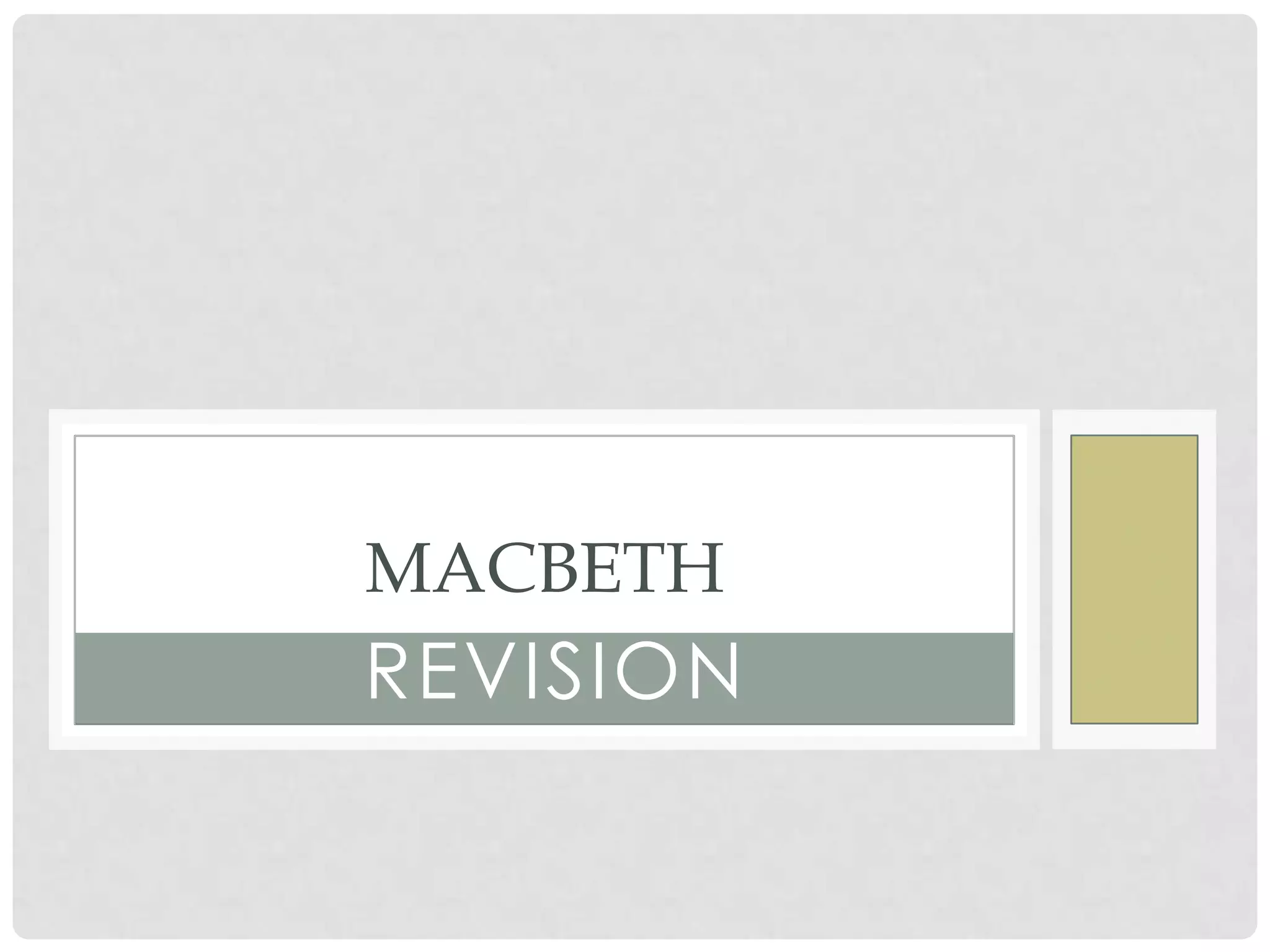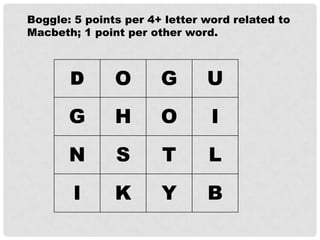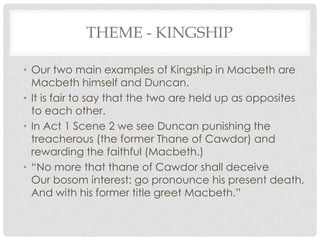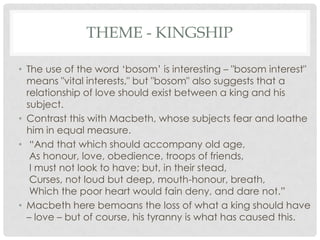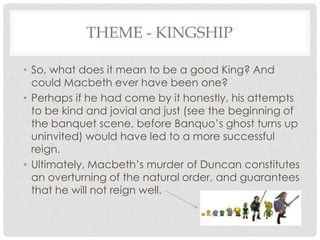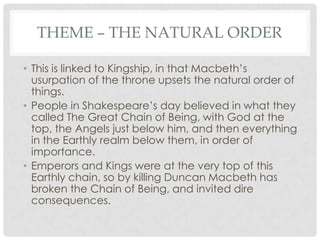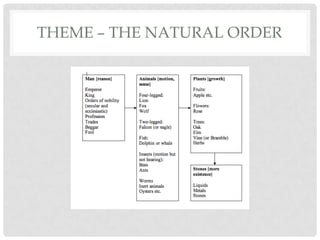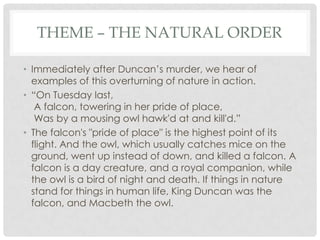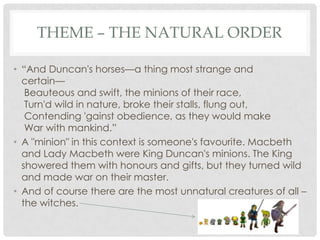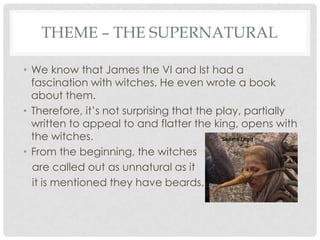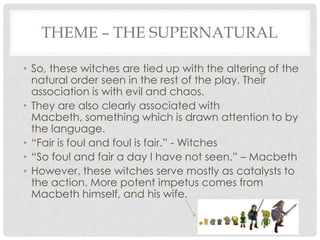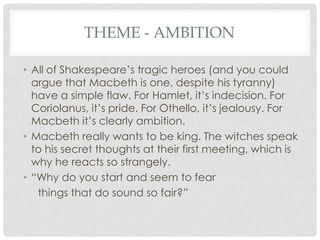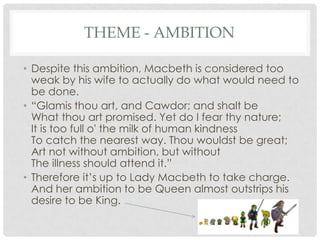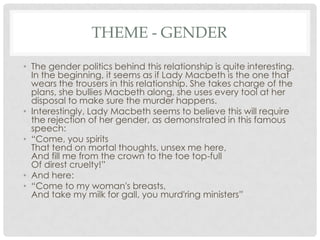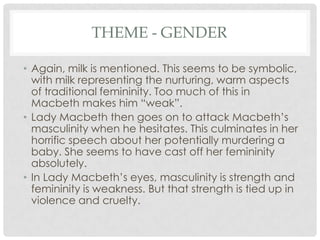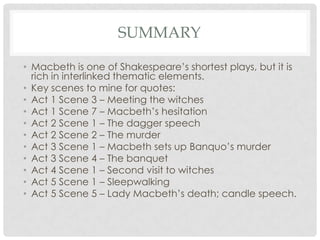This document summarizes several key themes in Shakespeare's Macbeth, including kingship, the natural order, the supernatural, ambition, and gender. It analyzes how Macbeth and Duncan represent different types of kingship, and how Macbeth's murder of Duncan upsets the natural order. It also discusses the role of the witches in tempting fate and the play's exploration of the corrupting influence of ambition, as well as the gender dynamics between Lady Macbeth and her husband. Key scenes are identified for mining quotes related to these central thematic elements.
